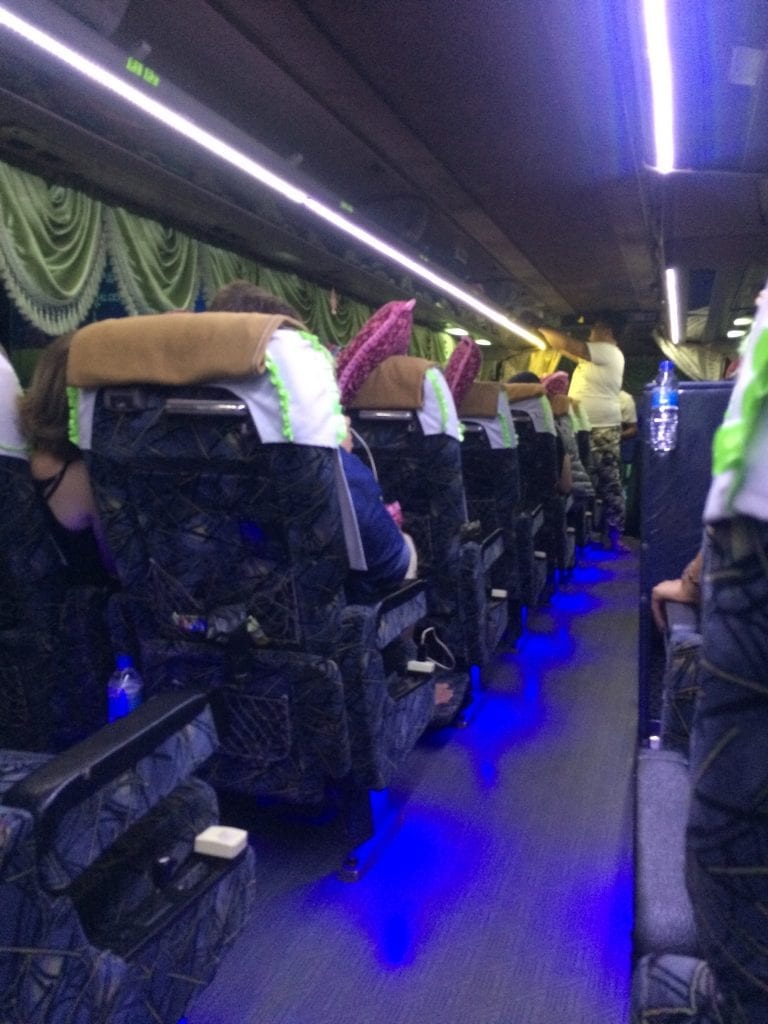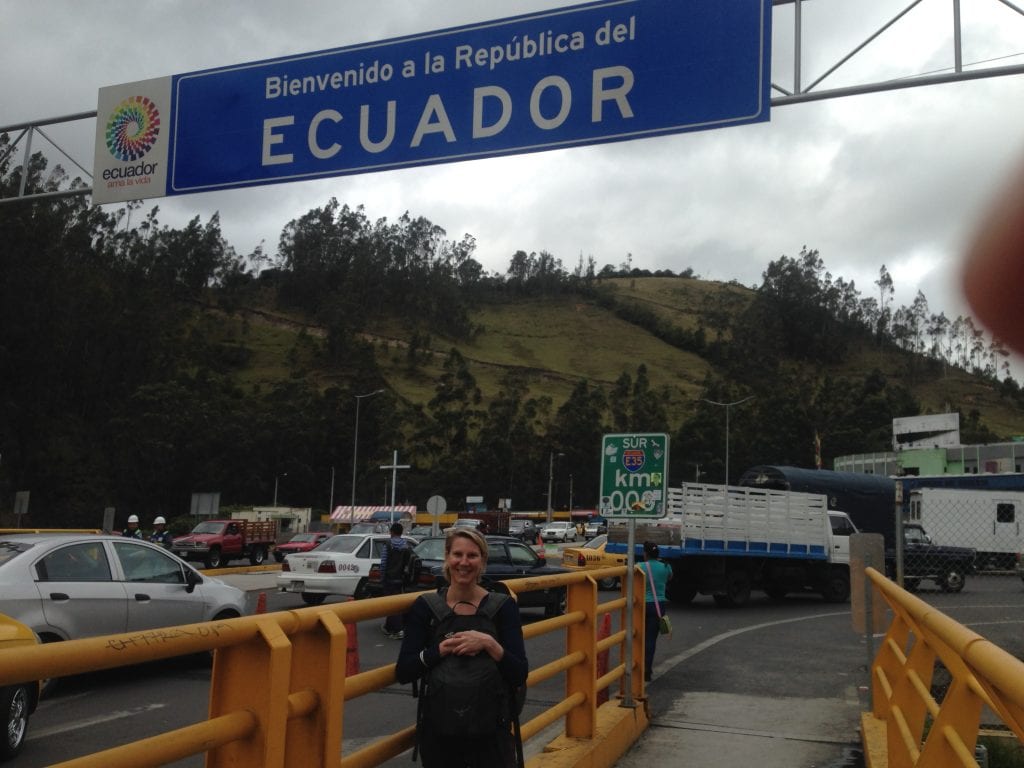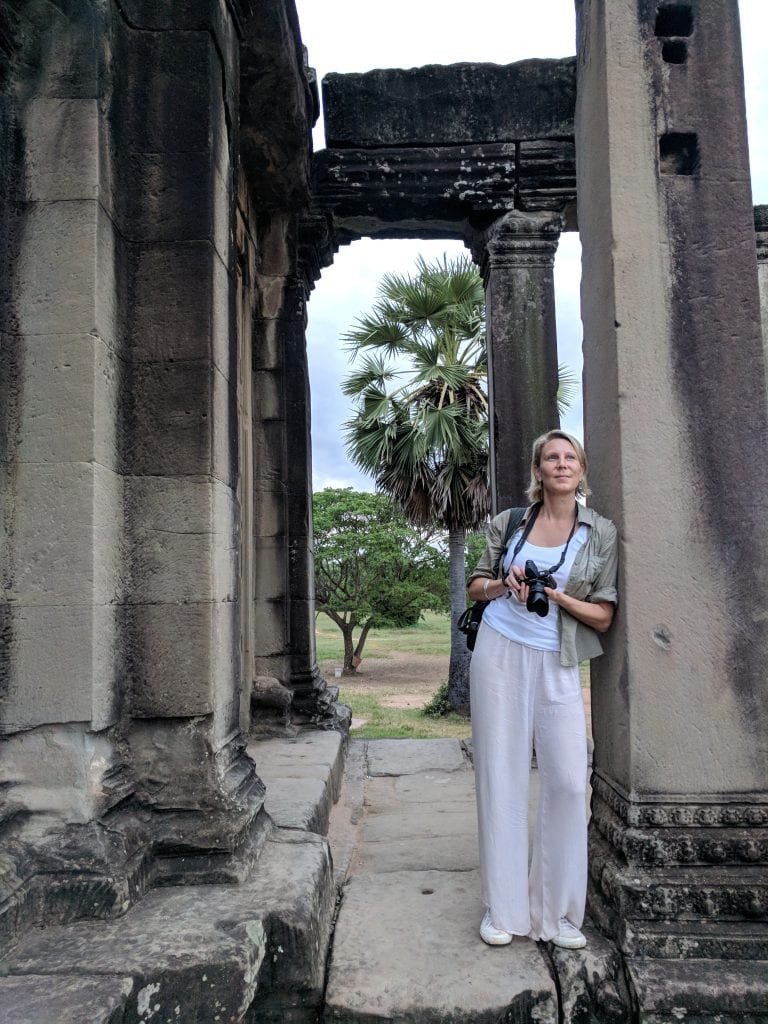7 tips to help you stay safe on the road
Can you travel solo and stay safe while you’re on the road? As a blonde woman, I tend to stand out almost everywhere I go. I could tell you hundreds of stories of how people who don’t usually see blonde westerners have reacted. Most of them are hilarious and none are malicious or dangerous, but there were some disconcerting times. Throw in a funny accent picked up from growing up and living in various countries so that no one can place where I’m from, and it’s hard to stay under the radar when I’m on the road.
It hasn’t stopped me though, nor will it ever! Safety when solo is a big concern, whether I’m at home, a new big city or in the middle of the countryside in a foreign country. My moto is something my mum would tell me when I was little: better be safe than sorry. Have I ever been overcautious? No doubt. Do I feel like I missed out on anything? Not yet!
It doesn’t surprise me when people ask if I’m afraid when I’m heading off on a trip. And I’m always happy to answer questions about how I stay safe. The older we get, the more aware we are of the world around us and the dangers that lurk around dark corners and down quiet alleys. It often makes us more wary. This means we are less likely to try something, so it is possible to miss out.
Too worried to give it a go?
How do you know if you’re verging on paranoia and never booking that trip? Learning to trust your gut is a great skill, but it takes time to develop it. We hear a lot about women’s intuition and trusting our instincts, and it does work. However, you need to tune in and listen, something many of us forget how to do in our busy lives.
You will find that you are overcautious when you start out. You’ll quickly learn along the way, though, I promise! On my first solo trip I was too worried about staying in hostel dorms, so I booked private rooms instead. I also joined longer tour group trips rather than go with the flow. I had a great trip but figured out that I didn’t have to be so inflexible. On my next solo trip, I went to the other extreme. I booked a one-way ticket, two nights’ accommodation and had a vague idea of where I was going, letting the flow take me. It was even better!
Here’s how I do it, what I’ve picked up along the way, and how you can also travel solo safely.
Getting there
Arriving in a new country or city can be daunting, especially if you don’t speak the language or it’s late at night. Try the following to reduce your risk and put your mind at ease:
- Ask your accommodation to arrange a pickup for you. This way someone will be waiting for you, so you don’t have to figure out how the system works, wait in long queues or risk being ripped off by opportunist taxi drivers. You can usually pay for it via your accommodation as well, so you won’t have to get to grips with a new currency when you’re tired or jetlagged. They will also know when to expect you.
- Research your transportation in advance so you know where you’re going and avoid looking lost on arrival. If you’re arriving during the day, a train or bus may be the best (and cheapest) way of getting into town.
- Use offline maps to track your journey. I love the Maps.me app. It works by downloading maps for the city/country you are visiting in advance, which then work offline, so it doesn’t matter if you don’t have a phone service or a WiFi connection. I track the route a driver takes so that I’m sure they are going to the right place. I can also speak up if I think they are taking the long way around – either at the time or take it up with whoever booked the service on arrival.

Getting around
Once you’re there you want to explore. You can walk, cycle, take a bus, train, tram, tuk-tuk – the possibilities are endless in some places, and that’s half the fun! A few things to keep in mind:
- Ask at your accommodation about the best ways of getting around. They can narrow down the bus options for you, for example, and let you know the best routes to get you to/from where you’re staying or to where you want to go. They can also help with buying tickets, whether or not you should negotiate a price and how much you should pay.
- Keep your belongings safe and close to you. Don’t have cameras or bags dangling by your side or hanging out of tuk-tuks. They can be snatched. The same goes for mobile phones that can be taken from your hands. If something is grabbed, let go or you run the risk of serious injury as well as losing your valuables.
- Ask at your accommodation about the safety of the local area. If you find yourself walking home alone at night, stick to well-lit roads if you can. Where possible, walk in the middle of the road (if there is no traffic) – you are more visible to anyone looking out of their window and less vulnerable than walking in the shadows. If you can’t find a taxi or rideshare go into the nearest hotel or restaurant and ask them to call one for you.
Accommodation safety
This is one of the main areas of concern for solo travellers, particularly women. We want to know that we will be safe where we’re staying. This is where research is valuable. Whenever possible, ask others who’ve been there before for recommendations – either through friends or online travel forums. I like to use Booking.com, as I find the reviews helpful, but there are plenty of other similar websites: Hostelworld, Kayak, Trivago and Expedia are just a few options. A few other things you can do:
- Book your first night in advance. I recommend this for any country that is a new destination for you, especially if you’re due to arrive late at night. That way you have the option to extend your stay if you like it or move out and find someplace else in daylight. Lots of travellers like to arrive and then search for a place to stay, believing it gives them a better feel for the place and a way to negotiate a lower price. For me, having a secure destination for the first night is important so I can concentrate on getting my bearings, and it’s one less thing to worry about.
- Take a doorstop with you. Small and light to carry, it could make a big difference. Some come with built-in alarms that will go off as soon as someone tries to open the door.
- Look for places that are in well-lit areas and easily accessible, so you are not walking long distances in the dark. Use reviews to weed out those that other solo travellers wouldn’t recommend and travel forums to seek suggestions of good places to stay.
Money and valuables
No one wants to lose their valuables or cash, especially when they’re far from home. It’s harder to replace them, and the police system may not be what we are used to back home. Here are some simple things you can do to keep things safe:
- Keep your money in lots of different places. Leave most of your cash in the safe or locker and then split what you need for the day across different spots, particularly on travel days. A money belt is one idea, as is your shoe or sock, a couple of different wallets (one of which could be a dummy wallet to hand over if necessary) or your bra. Or all of them!
- Carry a travel cash card. Ideally, you want an account that will only have a small amount in it that you can draw on using a cash card you can reload via online bank transfer. That way, if anyone forces you to withdraw money at an ATM, you won’t lose much. I keep a credit and debit card in the safe as a backup should anything happen to my cash card. Everything else, you can leave at home. For long-term travel, it’s also a good backup to have someone at home lined up to send you money in an emergency via Western Union or similar system.
- Leave valuables in a hotel safe or locker. It’s easy to say we shouldn’t travel with valuables, but almost everyone has a laptop, tablet and camera, not to mention our phones and passports. If you can use an older phone while travelling, you can keep your new, more expensive one at home. Avoid taking valuables you don’t need, such as jewellery. If you do have expensive devices, leave them locked up behind if you aren’t using them. Have a photocopy of your passport on you and leave the original locked in your room or hostel safe.
For more ideas and information on managing your money while travelling, take a look at Money Matters While You’re on the Road page.

Don’t be a target
You may not be a blonde who sticks out everywhere she goes, but as a tourist it’s hard to blend in seamlessly. When travelling, it’s easy to get carried away in the fun and excitement of it all. Here are a few basic rules and ideas to keep you and your belongings safe:
- Dress appropriately. Like it or not (and I don’t!) what we wear can be misinterpreted or cause offence, particularly in cultures where modesty is important. Be aware of what the cultural norms are in any country you travel to and keep bikinis and hot pants for the beach. Like I said, I may not like it, but I feel much safer knowing there is one simple thing I can do to avoid attracting unwanted attention.
- Stay sober(ish). We all like a drink after a hard day’s travelling or working. If you like to make it an alcoholic one, go for it! But don’t go overboard. Keep your wits about you, be aware of your surroundings and always be able to get yourself back to your accommodation safely. Remember to keep an eye on your drink as well to make sure no one slips anything into it. If that means taking it with you to the bathroom, so be it!
- Don’t do drugs. It’s just not worth it. Not only are you making yourself vulnerable by not having your wits fully about you, you don’t know what you are buying and could end up in hospital – or worse. And the police are often in on it as a way to make some money. If you’re lucky, you will get away with a fine or bribe. At worst, you could end up on death row in some countries. Like I said, not worth it.
- Avoid using your phone when on the move. Unless it’s an emergency, save the texting and calls for when you’re stationary or indoors. I’ve seen more phones snatched by thieves speeding by on scooters than I care to count. At best you lose your phone, at worst you could get injured.
- Keep your headphones/earbuds volume low. Keeping the volume low is a smart move. You want to be able to hear everything going on around you and not be taken by surprise.
Keep things safe
A little forward planning and getting into some good habits when travelling can quickly put your mind to rest. Try the following:
- Keep your belongings safe. Use a safety pack, or a slash-proof bag if you have one. Wear your bag across your body and keep it in front of you. I place a hand over mine in crowds to prevent it from swinging or being grabbed.
- Turn your daypack into a chest pack. If you normally carry a small daypack, it’s a good idea to switch it over and make it a chest pack when you are in a crowd. You have full sight of it as well as easy access, and no one can open it without you knowing.
- Carabiners and chest straps. If your daypack has a chest strap, clip it to a table or chair leg when you sit down somewhere. That way no one can try to snatch it and run! A couple of carabiners can also keep your zips secure on your bag, preventing anyone from unzipping it while you’re unaware.
- Carry a whistle. Another small but important item. Useful to call for help or to scare someone away. An alternative is a small bottle of insect repellent or hairspray to use in self-defence. Avoid pepper spray or Mace as they are illegal in many countries.

Be prepared
It never hurts to be prepared before you go. Even if you are the most laid-back, never-makes-plans-beyond-today kind of person, you’ll be glad you did if anything does go wrong. And it’s easy to do:
- Let people know your itinerary. Leave an itinerary with loved ones back home and keep them informed of any changes. Check in regularly as well as before and after long travel days. That way they don’t worry, and you know someone is expecting to hear from you. I had just passed through Nairobi, Kenya, when a shopping mall I had been in a few days before was bombed, but my family knew not to worry as I had already moved on and was completely off-grid for a few days.
- Let the front desk know where you’re headed. Hostel staff often ask where I’m going and when I’ll be back. Being a private person, I didn’t think they needed to know my every move until I realised they weren’t asking out of curiosity but for my benefit. A general idea is all they need and, again, you know someone is expecting you back.
- Take out insurance. Never, ever travel without insurance. You never know what can happen and when you may need it to replace valuables, lost bags or documents, or to cover missed connections, not to mention the medical cover it can offer if you get sick or injured. Depending on where you are in the world and what your trip looks like, there are various options on the market. I have been using SafetyWing for years. It covers all my needs (including long-term travel) and is very responsive and helpful.
- Get some dog tags with important medical and contact information. I have been known to do the odd crazy, adventurous thing on my travels, or to be off-grid for days. I have two dog tags with or on me at all times: one with details of who to contact in an emergency, and one with key medical information – blood type and any known allergies or medical conditions. That way I know that I can receive suitable medical care from the get-go and that my loved ones will be contacted if necessary. I have not had to put them to the test yet, but it’s good to know I have them!
Ask the locals
Those who live somewhere will know the place inside out. The good, the bad and the ugly. And they will always want tourists to visit and to have a good experience in their hometown. They can help limit the negative experiences and maximise the good ones.
- Join a tour. Lots of cities have tours, many of them free. They’re a great way to find out some of the history and cool spots to visit from someone who knows their way around. They can also tell you about any local scams that target tourists and give you some tips on how to stay safe as you explore.
- Check with your accommodation. Your hosts or front-desk staff will know the answers to most questions. Look out for signs in hostels that alert you to tourist scams or ways in which entrepreneurial locals may try to steal your valuables.
- Ask someone. If in doubt, ask. Not sure if you’re being charged a fair price? Ask a passerby or check with hostel staff.
Use your instinct
The more you travel, the more your instinct will be honed for things that are unusual or don’t feel right. As with anything, experience plays a big part. But that doesn’t mean that if you’re a first-time traveller you are missing something. Your instinct comes into play whether you’re at home or on the road. Listen to it and trust it – it’s more developed than you think, even if you are more cautious when starting out.
Remember: If a situation doesn’t feel right, walk away. Don’t worry about being rude, just get yourself out of it. Your safety is your first priority, and nothing should get in the way of that.
I have no doubt had a massive dose of luck on my side so far. But never underestimate how much a little preparation and a healthy dollop of common sense can keep you safe – at home and on the road.
